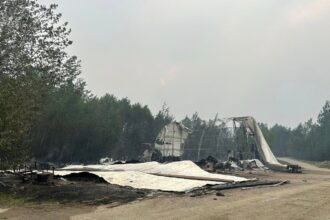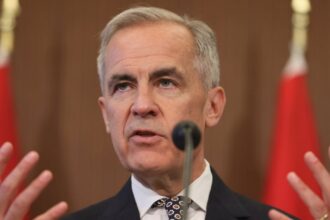British Columbia Premier David Eby has firmly rebuffed Ontario Premier Doug Ford’s unexpected proposal to build a cross-country pipeline through BC, citing environmental concerns and a lack of proper consultation. The interchange between the two provincial leaders has exposed deeper tensions in Canada’s ongoing energy infrastructure debate.
During a press conference yesterday in Victoria, Eby revealed that Ford had approached him with an impromptu proposal to construct a major pipeline corridor through British Columbia to facilitate the transportation of oil and gas resources to international markets.
“Premier Ford approached me with what appeared to be a hastily conceived plan for a national pipeline project,” Eby stated. “While I appreciate the spirit of interprovincial cooperation, major infrastructure projects require thorough environmental assessments, meaningful Indigenous consultation, and careful economic analysis—none of which were present in this proposal.”
Ford’s office defended the initiative as part of a broader vision to enhance Canada’s energy security and export capabilities. “Our government believes in unlocking Canada’s resource potential to create jobs and prosperity across the country,” a spokesperson from Ford’s office said when reached for comment.
The clash highlights the fundamental differences in how provinces approach resource development. Ontario, lacking significant oil and gas reserves, has demonstrated willingness to support cross-country energy projects, while British Columbia has maintained stricter environmental positions, particularly regarding fossil fuel infrastructure.
Indigenous leaders across BC were quick to respond to news of the proposal. Grand Chief Stewart Phillip of the Union of BC Indian Chiefs expressed frustration at being excluded from initial discussions. “Once again, we see major resource projects being contemplated without the free, prior, and informed consent of Indigenous peoples whose territories would be directly impacted,” Phillip noted.
Environmental organizations have praised Eby’s decision. “British Columbia has committed to reducing carbon emissions and transitioning to clean energy,” said Karen Mahon of Stand.earth. “A new pipeline would lock us into decades of additional fossil fuel infrastructure at precisely the time when climate science demands we move in the opposite direction.”
Energy economists point out that the economic case for new pipeline infrastructure remains contentious. Dr. Werner Antweiler from the University of British Columbia’s Sauder School of Business explained, “The global market for fossil fuels faces long-term uncertainty. Major infrastructure investments need to be evaluated against the backdrop of climate policies that aim to reduce fossil fuel consumption over the coming decades.”
This is not the first time BC has found itself at the center of national pipeline debates. The province has previously been the site of prolonged disputes over the Trans Mountain Pipeline expansion, which faced years of legal challenges and protests before construction proceeded.
The federal government has maintained a measured position on the matter. Natural Resources Minister Jonathan Wilkinson acknowledged the exchange between the premiers but emphasized that “any major interprovincial energy project would require federal regulatory approval and extensive consultation with affected communities.”
As Canada continues to navigate the complex balance between resource development and climate commitments, the question remains: can our federation find a pathway that respects provincial autonomy while addressing both economic interests and environmental imperatives in an increasingly carbon-constrained world?
























